Mission Archéologique Franco-Iranienne en Iran du Sud-Est (MAFISE)
Les recherches de la Mission Archéologique Franco-Iranienne en Iran du Sud-Est (MAFISE) concernent, pour l’essentiel, l’occupation humaine des provinces du Kermân et du Séistan-et-Balochistan du Néolithique à l’âge du Bronze (VIIe-IIe millénaires avant notre ère). Son volet central est une mission de terrain pluridisciplinaire dans un secteur peu connu : la région de Bam (Kermân) dans les marges méridionales du désert du Lut. Cette mission a comme objectif principal de reconstituer et d’analyser l’évolution du peuplement et de l’environnement de cette région du Néolithique à l’âge du Bronze. Localisée dans les marges méridionales du désert du Lut, l’un des points les plus chauds du monde, cette recherche concerne ainsi les modalités d’adaptation mises en œuvre en réponse à l’aridité croissante observée dans cette région. Elle complète les travaux portant sur les périodes historiques de nos collègues iraniens et notamment ceux du regretté C. Adle (CNRS), lequel a mis en place le premier programme archéologique dans ce secteur en 2003.
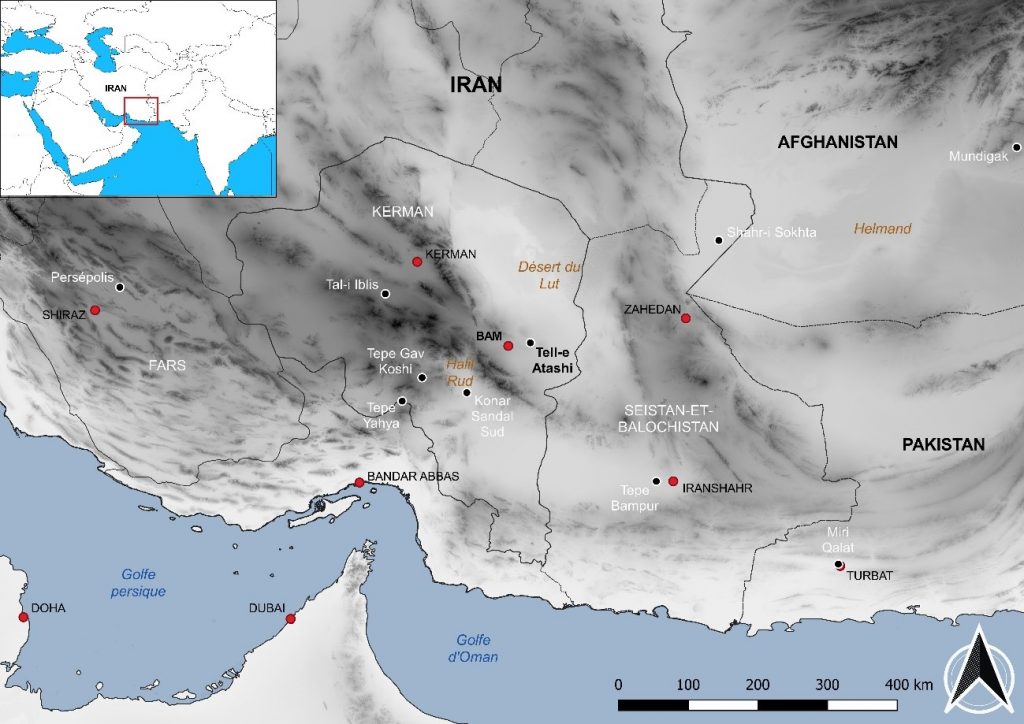
Fig. 1 : Carte de localisation de la région d’étude : les provinces du Kermân et du Séistan-et-Balochistan dans le sud-est de l’Iran et le site de Tell-e Atashi dans la région de Bam. Les villes ac-tuelles sont en rouge et les sites archéologiques principaux sont en noir cerclés de blanc (© MA-FISE/B. Mutin).
Les travaux de terrain de la MAFISE à Bam comprennent deux volets principaux : les prospections de surface qui visent à reconstituer la carte archéologique de ce secteur et la fouille du site néolithique de Tell-e Atashi daté d’entre la fin du VIe et le milieu du Ve millénaires avant notre ère. Ces opérations s’appuient sur une équipe pluridisciplinaire alliant les méthodes de l’archéologie de terrain à, notamment, l’analyse archéobotanique et archéozoologique, ainsi que l’analyse de composition des céramiques. Ses méthodes comprennent l’enregistrement et l’analyse des données par photogrammétrie et Système d’Information Géographique (SIG), ainsi que des méthodes de pointe de télédétection, lesquelles permettent notamment de reconstituer les anciens systèmes hydrauliques et aménagements du paysage.
La MAFISE collabore par ailleurs à l’étude et la publication des résultats d’autres recherches de terrain conduites actuellement ou récemment par nos collègues iraniens dans la province du Balochistan. Enfin, elle réexamine les archives et les collections issues de fouilles et de prospections plus anciennes, comme celles réalisées lors des années 1960 et 1970 à Shahr-i Sokhta, Tepe Yahya et dans la plaine de Daulatabad.
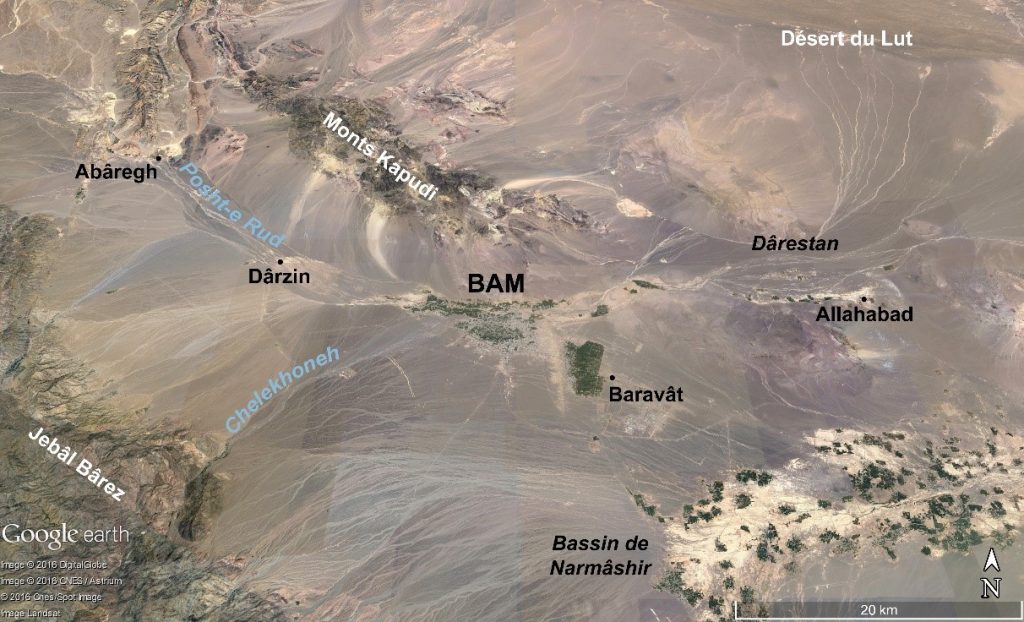
Fig. 2 : Région de Bam (© MAFISE/B. Mutin ; image satellite © Google Earth). Tell-e Atashi est locali-sé dans le Dârestan à l’est de Bam, non loin d’Allahabad.
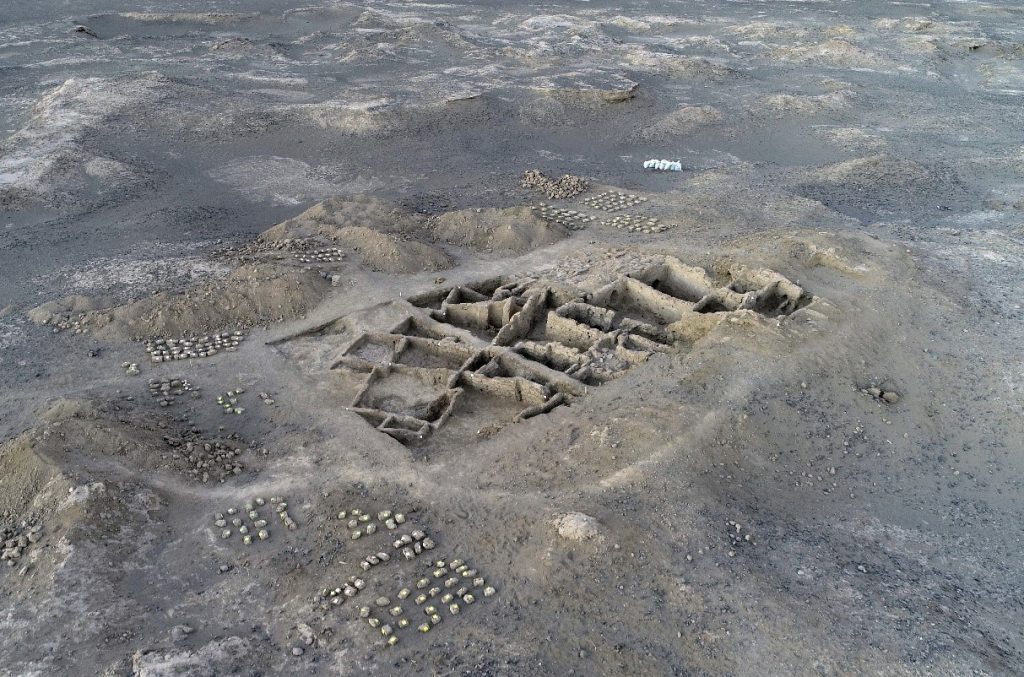
Fig. 3 : Site néolithique de Tell-e Atashi : photographie du complexe architectural en brique crue du Chantier 2 prise par quadcoptère (© MAFISE/Mirasearka).
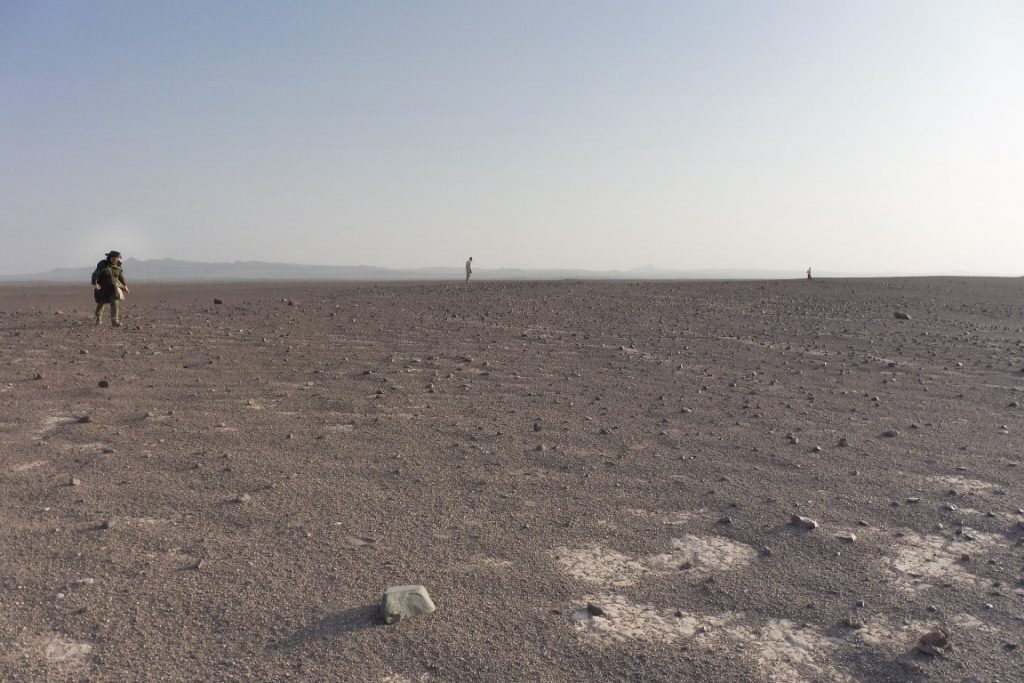
Fig. 4 : Site néolithique « en épandage » de la région de Bam (© MAFISE/B. Mutin).
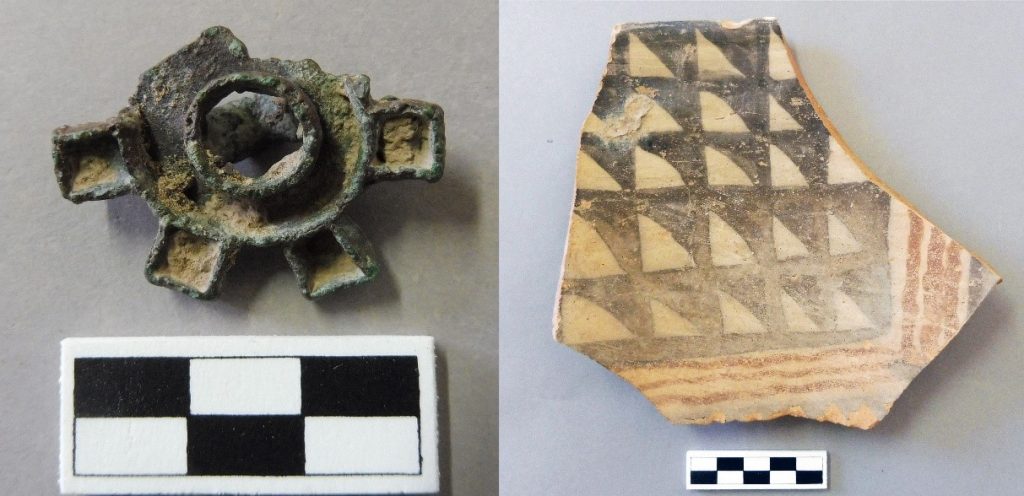
Fig. 5 : Sceau en cuivre (gauche) et céramique bichrome (droite) chalcolithiques de la région de Bam (© MAFISE/B. Mutin).
Articles
À paraître
Garazhian Omran & Mutin Benjamin. Copper Compartmented Seals from the Bam Region (Kerman, Iran). In: Parpola A. & Koskikallio P. (eds.), Corpus of Indus Seals and Inscriptions. Helsinki: Suomalainen Tiedeakatemia (Annales Academiae Scientiarum Fennicae / Memoirs of the Archaeological Survey of India).
2022
Mutin Benjamin. Les premiers villages agricoles de l’est du plateau Iranien à la vallée de l’Indus : état de la question. L’Anthropologie. https://doi.org/10.1016/j.anthro.2022.103050.
2021
Mutin Benjamin & Garazhian Omran. Migrations, transfers, exchanges, convergences? Assessing similarities and differences among the earliest farmers between the Daulatabad and Kachi Plains (Southern Iran and Pakistan). In: Lebeau M. (ed.), Identity, Diversity & Contacts. Proceedings of the International Congress The East 1: 113-136. Turnhout: Brepols.
2020
Mutin Benjamin, Garazhian Omran & Shakooie Maryam. The Neolithic regional settlement of Darestan, Southern Lut Desert, Iran. Archaeological Research in Asia 24 (2020) 100230. https://doi.org/10.1016/j.ara.2020.100230.
2019
Sarhaddi-Dadian Hossein, Mutin Benjamin & Moradi Hossein. New Data on the Chalcolithic and Bronze Age periods in the South-Eastern Greater Periphery of the Jazmurian Basin: Archaeological Survey along the Sarbaz Valley and in Adjacent Areas in Iranian Baluchestan. Iran 55 (2).
Mutin Benjamin & Minc Leah. The Formative Phase of the Helmand Civilization, Iran and Afghanistan: New Data from Compositional Analysis of Ceramics from Shahr-i Sokhta, Iran. Journal of Archaeological Science: Reports 23: 881-899.
Mutin Benjamin & Garazhian Omran. Iranian-French Archaeological Mission in Bam, Kerman. Summary of Field-Seasons 2016-2017. Archaeology. Journal of the Iranian Center for Archaeological Research 2 (2): 93-106.
Garazhian Omran, Mutin Benjamin & Mohammadkhani Kourosh. Comparative Assessment of Geomagnetic Survey Results with Archaeological Test-Trenches. Case study of Tell-e Atashi, Darestan, Southeastern Kerman (in Persian). In: Shirazi R. (ed.), 16th Annual Symposium on the Iranian Archaeology (A Collection of Short Articles 2017): 410-413. Tehran: ICAR and RICHT.
Garazhian Omran & Mutin Benjamin. General archaeological survey of the Bam-Narmashir region with an emphasis on Darestan (in Persian). In: Shirazi R. (ed.), 15th Annual Symposium on the Iranian Archaeology (A Collection of Short Articles 2016): 314-318. Tehran: ICAR and RICHT.
2018
Mutin Benjamin & Garazhian Omran. Bam Archaeological Mission (BAM). A New Archaeological Research Program in Kerman Province, Iran. Antiquity 92 (363): 1-7.
2017
Mutin Benjamin, Moradi Hossein, Sarhaddi-Dadian Hossein, Fazeli Nashli Hassan & Soltani Mojtaba. New Discoveries in the Bampur Valley (southeastern Iran) and their Implications for the Understanding of Settlement Pattern in the Indo-Iranian Borderlands during the Chalcolithic Period. Iran 55 (1): 1-21.
Mutin Benjamin, Minc Leah, Lamberg-Karlovsky C.C. & Tosi Maurizio. Regional and Long-Distance Exchanges of an Emblematic “Prestige” Ceramic in the Indo-Iranian Borderlands. Results of Neutron Activation Analysis. Paléorient 43 (1): 141-162.
2016
Mutin Benjamin, Lamberg-Karlovsky C.C. & Minc Leah. Investigating Ceramic Production during the Proto-Elamite Period at Tepe Yahya, Southeastern Iran: Results of Instrumental Neutron Activation Analysis of Periods IVC and IVB Ceramics. Journal of Archaeological Science: Reports, Special Issue: Uruk Expansion: 849-862.
Garazhian Omran. Stratigraphic excavation at Tal-e Atashi, Darestan, Bam: Living floors of a pre-pottery Neolithic site, Southeastern Iran. In: Roustaei K. & Mashkour M. (eds.), The Neolithic of the Iranian Plateau. Recent Research: 49-74. Berlin: Ex oriente (Studies in Early Near Eastern Production, Subsistence, and Environment 18).
2015
Mutin Benjamin. Chrono-cultural Sequence of the Bampur Valley (Southeastern Iran) during the Chalcolithic Period: A Reevaluation of the Stein Collection at the Peabody Museum, Harvard University. Iran 53: 1-28.
2013
Garazhian Omran & Shakooie Maryam. Tell-e Atashi (Bam, southeastern Iran) and the Neolithic of the eastern Near East. In: Matthews R. & Fazeli Nashli H. (eds.), The Neolithisation of Iran. The Formation of New Societies: 284-296. Oxford and Oakville: Oxbow Books (British Association for Near Eastern Archaeology Monograph Series 3).
2009
Garazhian Omran. Darestan: a group of pre-pottery Neolithic (PPN) sites in South-Eastern Iran. Antiquity Project Gallery 83 (319).




